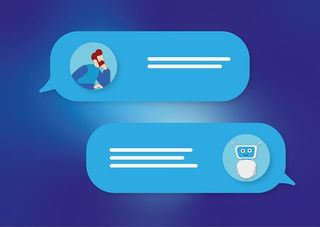Access to strong professional development for school leaders and educators has been a challenge and varies across school communities. Despite significant investments made in PD programs, the impact on teacher practices and student learning outcomes has produced wide-ranging and inconsistent results.
Recognizing this challenge, providing PD that creates opportunities for educators to engage with new interactive and AI technology, such as chatbots, should be integrated into efforts.
The Need For – And Promise Of – Innovative AI-Supported PD
Teacher shortages, burnout, and increased challenges among students and families have become pressing issues in education, making the need for high-quality PD even more significant. Researchers such as Copur-Gencturk, who focus on middle school math teachers' use of AI in their PD, recognize the obstacles in teaching a subject, with conceptual learning processes. By improving teachers' understanding of math concepts and pedagogical content knowledge, supportive PD with AI can deliver more quality support.
As AI is being utilized to enhance learning experiences for students, the potential of it in scaling up effective PD programs is tantalizing to help make learning accessible to teachers anytime and anywhere. During the urgency demanded by the pandemic, a comparable level of convenient access was realized. Educators had to adjust fast and were offered abundant digital tools to engage in online teaching.
I referred to this as Pop-Up PD, in which teachers were motivated to learn in ways they previously resisted. Now, with the integration of AI-driven tools, teachers can access stronger individualized feedback and analysis of their performance, leading to improved instructional practices and student outcomes.
Positive Results and Proof of Concept
Through a pilot program implementing PD with an AI virtual facilitator based on natural language processing, Copur-Gencturk's research yields promising results. Middle school math teachers who completed the online PD program experienced higher test scores among their students.
Other examples of virtual assistants and chatbots to engage educators to improve instruction have emerged. The positive impact of AI-based interventions demonstrates the promise that personalized, scalable PD can be achieved through these tools. Additionally, providing a networked online platform that allows for confidential sharing of ideas may encourage educators and school leaders to express themselves more freely. With greater liberty comes more creativity, something from which all schools can benefit.
Expanding the Scope & Potential Benefits
Building upon the success of emerging research offers a glimpse into the broader developmental potential across subject areas for school leaders. Administrators often face greater isolation and concerns for speaking out, which infringes upon their willingness to tinker.
AI that engages administrators, such as chatbots, may offer a broader array of developmental tools to arm new and developing school leaders with the tools to take on the many challenges of their positions.
Potential benefits of AI use in PD include:
- The ability to refine a prompt query. Discovering that when an initial prompt is too vague or pointed in the wrong direction, we can quickly revise it for the desired output. This liberates the user to tinker more and feel less constrained.
- Fostering both content knowledge and pedagogy. Through a chatbot's personalized feedback for educators, what-if scenarios can be considered to help an administrator rehearse circumstances in a more engaging format that allows them to later confront real-life scenarios with considerably authentic experience gained in virtually safe havens.
- Providing quick references, guides, and prompt libraries. These resources can offer support in areas such as lesson planning, assessment, communication, and social/emotional learning. For administrators, chatbots can help guide interactive developmental idea processing, allow for powerful feedback mechanisms, and help clarify and increase the efficiency of communication methods.
- Allowing for varying access points to learning opportunities. Leadership and teacher preparation support varies widely, particularly for those educators with limited resources and lesser access to PD. Bridging this gap with efficiently accessible AI and virtual tools disrupts the gaps that permeate the wide range of local districts and socioeconomically disadvantaged communities.
- Time and cost savings. Online PD programs powered by AI not only save school leaders and teachers time but also provide cost-effective solutions – a win-win. And while in-person PD is invaluable and cannot be minimized, AI-driven platforms enable teachers to receive immediate and actionable feedback tailored to their specific needs drawn from a vast ecosystem of resources. Additionally, the absence of in-person instructors reduces costs associated with traditional PD programs.
Cautions: Be mindful of and navigate around AI biases and hallucinations. AI algorithms are trained on historical data, which can perpetuate biased patterns and reinforce existing inequalities in education.
To ensure equitable and unbiased PD, it is essential to provide understanding about the risks associated with AI biases and as importantly, how to work around those biases. Critically evaluate the data and algorithms used in AI systems, actively address biases, and prioritize diversity and inclusion in AI development and implementation.
The Future of AI-Supported Teacher PD
The integration of AI in teacher PD does not replace human interactions and support. Yet reimagining PD by tapping the potential of newly developing technological advancements enables educators to be more efficient and reach a greater information database. Leaders in need of low-cost, powerful, immediate PD support, such as chatbots, can now access a rich new resource.
The use of AI in teacher PD represents a significant opportunity in advancing instructional practices and student outcomes. AI-driven solutions, properly employed, can empower educators to thrive in their profession and create support for students, to help them reach their potential, a resource that can not be ignored.

